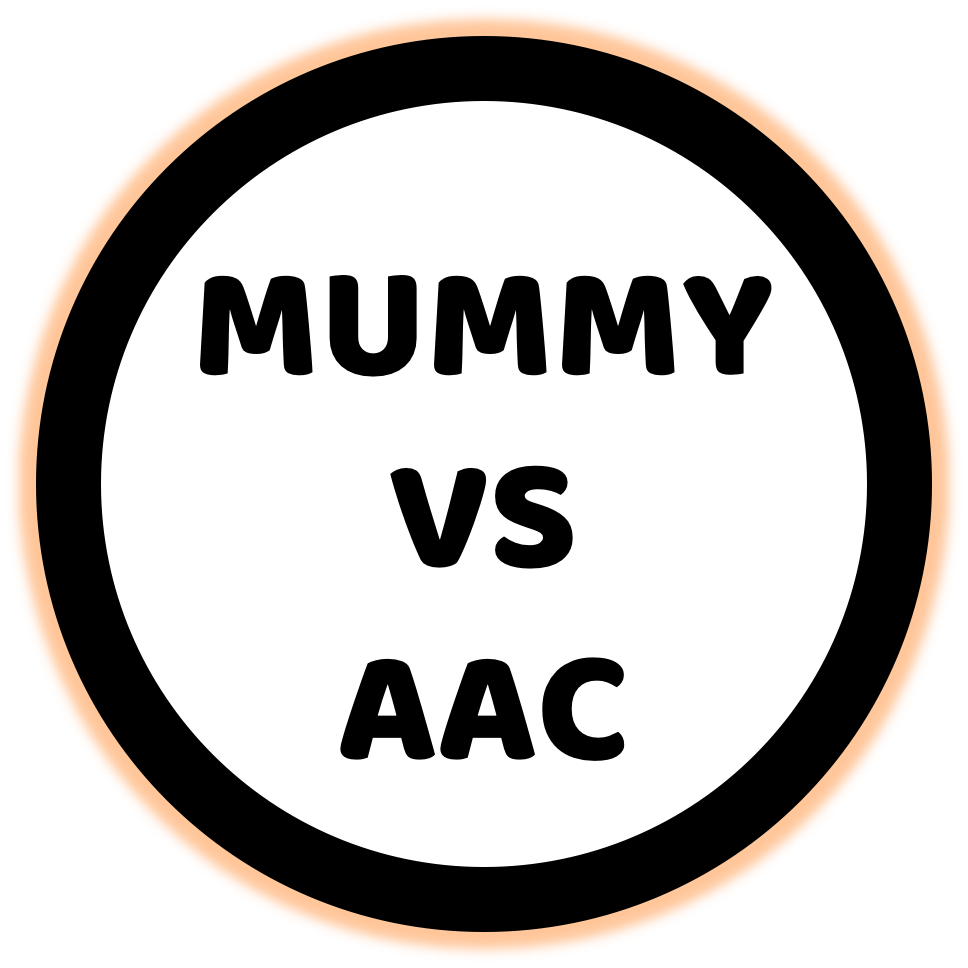AAC Parent Resource Bank
This page is full of links to web based resources that I think will be helpful to anyone, Parents, SLT students, SLTs new to AAC or Teachers who want to start with AAC. I’m adding new items to this list regularly and will aim to keep track of any links that change or stop working.
What is AAC
This blog from AssistiveWare is great for looking up and getting to know some of the key concepts in AAC. Information about AAC can be riddled with jargon. This is a handy glossary to help navigate all of that.
Beth Moulam who is a paralympian who uses AAC has created a great resource about AAC with her 60 second scoops about AAC.
Getting started
ACE Centre Getting Started book available to download here https://acecentre.org.uk/resources/getting-started-with-paper-based-symbol-resources
‘Communication: The Sky’s the Limit’ by Jane Farrall from the Angelman UK conference in 2019 (I was at this in person and it inspired me to use a robust language system rather than selected words).
Simple AAC from Smartbox is a good introduction to the practical aspects of AAC. The website has lots of resources, downloadable leaflets and videos.
Core Vocabulary
Project Core This is a US project with a wealth of resources for using core word vocabulary including downloads of pages to print and use. There are some learning modules and modules 1-3 cover beginning with and understanding core vocabulary.
Modeling/ Aided Language Stimulation
Project Core This is a US project with a wealth of resources for using core word vocabulary including downloads of pages to print and use. There are some learning modules and modules 3 and 4 cover modeling.
This is a super video by Chris Bugaj from the Loudoun County Public Schools Assistive Technology Team Youtube Channel.
Facebook Groups
The AAC Connection This is a group for discussion between communication partners of AAC users whether they’re in the school setting, parents or community.
AAC Through Motivate, Model, Move Out Of The Way There’s so much in this group. Members include AAC users, parents, carers and therapists. The discussion is rich and lovely and there’s so much information.
Ask Me, I’m an AAC user! Is a great group on facebook. Open to AAC users, clinicians and families it’s full of rich discussion. There is a rule that stops people who don’t use AAC from replying within 24 hours which preserves the group purpose. There are some detailed group rules and conditions. IT’s well worth reading them as they themselves are a rich source for reflection and learning.
Literacy
The Book Comprehensive Literacy for All by Karen A Erikson and David A. Koppenhaver is a great resource bringing together much of the current thinking about literacy. The thing I LOOOOVE about this book is that it’s very clear from the start that the book really is about literacy for ALL learners.
The Lomah podcast season 5 episodes 131-145 focus on literacy using Comprehensive Literacy for All as a framework there are interviews with some leading minds in literacy development.
Hardware and Software
There are numerous companies providing hardware and software to support AAC. Here are the websites of some of the companies. They often have support and resources on their websites that can be used across systems.
https://www.sensoryapphouse.com/sensorypicom/
Assessment
Assessments will usually be carried out by professionals however there are some that are targeted at parents too. The Communication Matrix is free to use up to a certain number of assessments per year (5, so plenty for a parent) and gives a profile of communication strengths.
Representational Hierarchy
I’ve included this article by Gayle Porter and Linda Burkhart as it’s about one of the most common misconceptions in AAC. When I was at university we were taught that children needed to be able to match objects to objects and then to photographs before we would even think about more abstract symbols like those we commonly use in AAC. The need to progress in this way is widely discredited and this article by two experts supports that. I include it here as you may encounter professionals who still wish to work in this way.
Myth Busting
This 2005 article from Romski and Sevcik debunks all the myths about AAC that parents might hear. Augmentative Communication and Early Intervention
